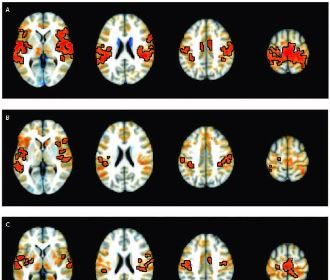Stanford President Resigns After Extensive Review of Flawed Research

STANFORD, Calif. — Marc Tessier-Lavigne resigned as president of Stanford University on Wednesday after an independent review of his research found significant flaws in studies and laboratories he supervised.
The review by a special committee of the university’s Board of Trustees began last December, after allegations claiming serious flaws in Tessier-Lavigne’s work appeared on the website PubPeer, a crowd-sourced platform where members of the scientific community can raise issues or concerns regarding scientific publications.
Those allegations were later picked up and reported on by the Stanford student newspaper, The Stanford Daily, and other media outlets.
The nearly 100-page investigative report released by the special committee is based on a review of scores of papers Tessier-Lavigne co-authored before becoming Stanford’s president.
It concluded that while there were significant flaws in several of the papers they looked at, Tessier-Lavigne did not have knowledge of any manipulation of the research data on which they were based, did not personally prepare the data that has been publicly challenged and “was not in a position where a reasonable scientist would be expected to have detected any such conduct.”
Nonetheless, the report’s authors said, based on the available research record and other factors, each of the papers has serious flaws in the presentation of research data. In at least four of the five papers, there was apparent manipulation of research data by others.
The paper that came under the most scrutiny was published in 2009 in the journal Nature and proposed a model of neurodegeneration that was seen as having great potential for Alzheimer’s disease research and therapeutics.
After it was published Tessier-Lavigne and his employer at the time, Genentech, were accused of engaging in fraud. However, the report said these allegations now appear to have been mistaken, as Genentech claimed all along.
“That said, the Nature ’09 paper does have multiple problems,” the report’s authors said. “First, the process through which the science of the paper was developed in Dr. Tessier-Lavigne’s lab, culminating in its publication in February 2009, lacked the rigor expected for a paper of such potential consequence.
“Second, the day-to-day scientific research that went into the paper and its presentation of scientific results contained various errors and shortcomings,” they wrote.
In addition to looking at the small number of Tessier-Lavigne’s papers that had been called into question, the investigative panel also examined his management and oversight of his scientific laboratories.
Here, too, the report concluded that while there was an upside to much of what Tessier-Lavigne did — noting that he “created a laboratory culture with many positive attributes” — it nevertheless said the “unusual frequency of manipulation of research data and/or substandard scientific practices from different people, at different times, and in labs at different institutions, suggests that there may have been opportunities to improve laboratory oversight and management.”
Tessier-Lavigne’s resignation came after he learned the results of the investigation. In a letter to faculty, the university’s board, administration and students, he said he would relinquish the presidency at the end of August but remain at the university as a professor of biology.
The university has named Richard Saller, a professor of European studies, as interim president, beginning Sept. 1.
In a statement describing his reasons for resigning, Tessier-Lavigne noted that in the 32 years that he’s headed a research laboratory, he has published 74 papers as a principal author, and over 150 of which he was simply a co-author.
“I am gratified that the panel concluded I did not engage in any fraud or falsification of scientific data,” Tessier-Lavigne said. “Specifically, the panel did not find that I engaged in research misconduct regarding the 12 papers reviewed, nor did it find I had knowledge of or was reckless regarding research misconduct in my lab.
“As I have emphatically stated, I have never submitted a scientific paper without firmly believing that the data were correct and accurately presented. Today’s report supports that statement,” he said.
Tessier-Lavigne went on to acknowledge the report identified areas where he could and should have done better, and he said he accepts those conclusions.
“Specifically, the report discusses steps I took to address issues that arose with some publications,” he said. “I agree that in some instances I should have been more diligent when seeking corrections, and I regret that I was not.
“The panel’s review also identified instances of manipulation of research data by others in my lab. Although I was unaware of these issues, I want to be clear that I take responsibility for the work of my lab members,” he added.
Tessier-Lavigne said as a result of the review, he would retract a 1999 paper that appeared in the journal Cell and two others that appeared in Science in 2001.
Two other papers published in Nature, including the 2009 Alzheimer’s study, would also undergo robust corrections, he said.
The investigative panel said it agreed that significant action was appropriate to correct the scientific record.
Dan can be reached at [email protected] and @DanMcCue

























